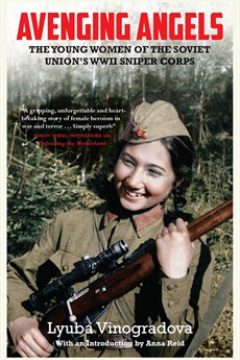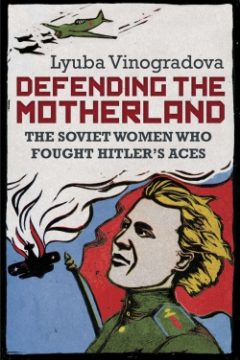Avenging Angels
 Lyuba Vinogradova
Lyuba VinogradovaThese women were still in their late teens when called up to join the Soviet forces between 1942 and 1944. Some volunteered to serve in the army, but most were given no choice as to whether to join the army or not, or whether to become a sniper or choose another army profession. After a few months of extremely rigorous training they were issued with sniper rifles and sent to the front. Practically without exception, their first taking of an enemy life came as a great shock, and changed them for ever. As the number of their kills grew, many became addicted to their new profession, to the point of becoming depressed if a “hunt” proved fruitless. Veterans gave different accounts as to the most difficult aspect of life at the front: hours and hours in a trench without being able to eat, drink or get warm, with their lives constantly at risk, or burying their best friends, or the sexual harassment by male officers. War proved very different from what they had expected.
Although many were killed, often on their first day of combat, the majority returned from the war. Some were able to continue their studies, but most both worked and started families. They were still in their early twenties, and despite the physical or mental scars left by the war, they had no time for complaints. Their next job after the taking of lives was to give life, and to nourish it.
Drawing on original interviews, diaries and previously unpublished archival material, Lyuba Vinogradova has produced an unparalleled account of these women’s lives.


